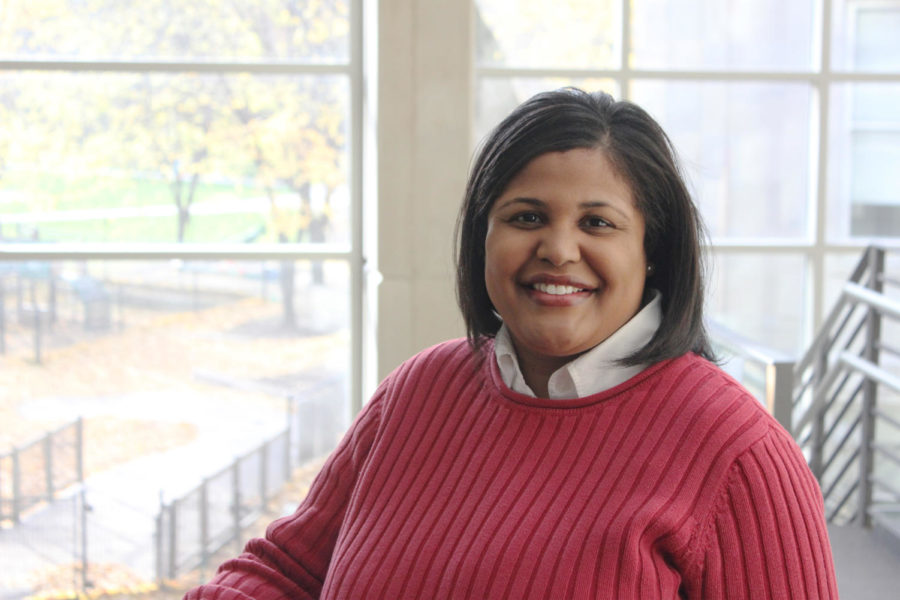ISU professor studies ‘single’ relationship status of black women
November 12, 2013
Tera Jordan, assistant professor of human development and family studies, is conducting a research study to explore married black men’s perceptions of single black women, with the hope of determining why black women are disproportionately single.
Jordan was interested in the black community and the relationships within that community.
In the context of her study, she asked 52 black men questions that explored reasons why they got married, reasons why they stayed married and asked them about challenges they faced in their relationships.
Along with those questions, she asked the married men their viewpoints on why black women are disproportionately single.
“As a marital researcher, I understand that much of the literature does not include the voices of black men, in particular,” Jordan said. “Women’s perspectives are the ones that are reflected. We don’t hear from men enough about their particular experiences.”
The men gave their honest opinions that were related to their observations in their own families and were based on their personal experiences.
Stacey McElory, counseling psychology doctoral student at Georgia State University, worked with Jordan on the study.
“I’m interested in the role that culture plays in romantic relationships,” McElroy said. “For example, how do people negotiate their [individual] identity and their couple identity with respect to culture?”
From the research’s findings, the men named various factors that were grouped into four themes: gender relations, marriage education and socialization, individual development, and preferences for gay or lesbian relationships.
In Jordan’s research, 79 percent of men discussed gender relations between men and women in the black community which was the main factor as to why black women are disproportionately single.
“While gender relations are the primary finding, the men did talk a lot about what it means to be ready for individuals to be marriage-ready. They highlighted the importance of individual development,” Jordan said.
“Specifically, those findings really focus on working on yourself first before you begin to think about partnering with someone else. Whether that’s finishing your education, traveling to different places, focusing on spiritual growth or learning about who you are as a person.”
Jordan said there is also a strong argument for marriage education and marriage socialization.
“If we want to help people build and maintain satisfying, long term relationships, we can’t just work at the individual level,” McElory said.
Jordan said she believes her research will impact the community in many ways.
“Let’s open up the conversation between men and women about changes in gender roles, relationship expectations and healthy relationship communication,” Jordan said. “Though these phenomena are not specific to the black community, they are very much represented in the black community. We can then develop goals about where we go from here as a community in building stronger relationship ties.”
Jordan will be speaking at a research seminar on Wednesday, Nov. 13, in 331 Palmer Building and will go into further detail on her research, titled “Married black men’s opinions as to why black women are disproportionately single: A qualitative study.”
“Individuals that attend the presentation will come away with a better understanding of relationship trends in the black community, as well as build on strengths they have currently as individuals and to experience healthier relationships by considering their own relationship goals and expectations,” Jordan said.
She worked on her research with McElroy; Kameron Sheats, of Morehouse School of Medicine; Antoinette Landor, of the University of North Carolina at Chapel Hill; and Chalandra Bryant, of the University of Georgia.

















